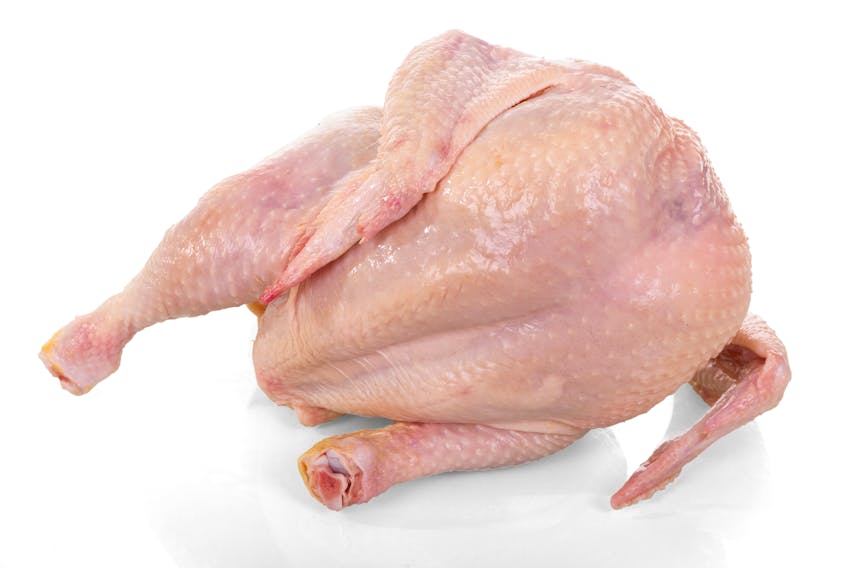Federal public health officials are urging people to properly handle raw chicken after a salmonella outbreak that includes 10 confirmed cases in Newfoundland and Labrador.
As of Sept. 13, there were 419 laboratory-confirmed cases of salmonella illness investigated as part of the illness outbreaks across the country, including 23 cases in New Brunswick, nine in Nova Scotia, one in Prince Edward Island and the 10 in in this province. There have been 86 individuals hospitalized because these outbreaks.
The Public Health Agency of Canada said in a news release Wednesday it is collaborating with provincial and territorial public health partners, the Canadian Food Inspection Agency and Health Canada to investigate the outbreaks of Salmonella infections across Canada linked to raw chicken, including frozen raw breaded chicken products.
Previously Canada’s Council of Chief Medical Officers of Health issued a statement advising people to follow proper food safety practices when handling, preparing or consuming frozen raw breaded chicken
products such as chicken nuggets, chicken strips, chicken burgers, popcorn chicken and chicken fries.
When not thoroughly cooked, frozen breaded chicken products containing raw chicken pose an increased health risk to individuals who handle, prepare or consume them. These products may appear to be pre-cooked or browned, but they should be handled and prepared with caution.
Anyone can become sick with a salmonella infection. But the officials warn infants, children, seniors and those with weakened immune systems are at higher risk of serious illness because their immune systems are more fragile.
Illnesses can be avoided by following cooking instructions carefully and verifying the internal temperature after cooking, as recommended, before consuming these products.
Frozen raw breaded chicken products and raw chicken pieces must be cooked to an internal temperature of at least 74°C to ensure that they are safe to eat. Whole chicken needs to be cooked to an internal temperature of 82°C.
The health officials say consumers shouldn’t use the microwave to cook these products because it results in uneven heating and may cause some parts of the product to be undercooked.









